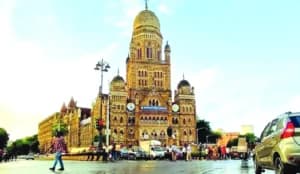The Supreme Court has strongly advocated for setting up fast-track courts to handle the 288 pending gangster-related trials in Delhi. The bench, comprising Justice Surya Kant and Justice Joymalya Bagchi, expressed deep concern over delays in these criminal cases and highlighted the urgent need for a dedicated judicial mechanism.
“There should be no misplaced sympathy with gangsters, society needs to get rid of them,” remarked Justice Kant during the hearing.
The Court was informed that in these 288 cases, charges have been framed only in 108, with an alarming delay of 3–4 years before prosecution evidence even begins. The judges noted that such delays defeat the purpose of justice and allow criminals to exploit the system.
“25% trial cases have reached the stage of prosecution evidence. That means 75% cases are still in queue. When will that evidence be over? Absolutely indefinite. Even trial court can't answer,” observed Justice Kant.
The Court directed the Union of India and NCT of Delhi to coordinate and identify the number of courts needed to ensure completion of all trials within a year. The Court emphasized that these new courts should only handle cases under the Gangsters Act.
“If we want to finish trial ideally within 1 year... how many designated courts we need? That court should have no other case,” said Justice Kant.
The bench also discussed the “chilling effect” that timely adjudication can have on hardened criminals. Establishing special courts would not only fast-track justice but also prevent frequent bail grants that lead to repeated crimes.
“If you have dedicated adjudicatory mechanism for these cases, it will have a very good chilling effect. People will be very happy. Courts won’t be compelled to release them on bail,” added the Court.
The judges urged authorities to take a holistic view by involving the Union Government, Delhi Government, and the Delhi High Court. Acknowledging the need for infrastructure, they noted that additional judicial posts and staff must be created.
Read also: Supreme Court Petition Seeks POSH Act Implementation for Political Parties
“This can only happen if Union and Govt of Delhi resolve to introduce a mechanism like fast-track courts... additional posts of judicial officers and infrastructural facilities must be provided,” the Court stated.
On witness protection, the bench was critical of the current setup. It stressed that without proper safeguards, witnesses are vulnerable and justice remains compromised.
“You keep the undertrial in jail, but you can’t keep the witness in jail... your eyes and ears don’t function, rule of law is absolutely impaired,” Justice Bagchi stated.
The bench also reflected on the alarming state of law and order in NCR regions, especially in Sonipat, Jhajjar, Gurugram, and Faridabad.
“In the NCR, if you just go out the geographical boundary of Delhi, what's happening?” questioned Justice Kant.
Read also: Udaipur Files Movie Row: Supreme Court To Decide on Extension of Release Stay
Highlighting the deliberate delay tactics used by gangsters to win over witnesses, the Court stressed the need for strict and speedy trials.
“Gangsters must be dealt with ruthlessly, of course in accordance with law... 70–80-year-old women are attacked. Society needs to get rid of them,” remarked Justice Kant.
Justice Bagchi also pointed out the heavy burden on prosecutors, who are unable to manage day-to-day hearings due to the sheer number of cases.
“One prosecutor handles 50 prosecutions. Is it humanly possible to have a day-to-day trial?” asked Justice Bagchi.
Before concluding, the Court appreciated the State of Andhra Pradesh for initiating fast-track courts and encouraged similar efforts in Delhi.
The petitioner, facing 55 criminal cases, had earlier been denied bail by the apex court, which then demanded an explanation on the lack of a speedy trial mechanism.
Case Title: MAHESH KHATRI @ BHOLI vs. STATE NCT OF DELHI
SLP(Crl) No. 1422/2025) was the context of this hearing.















